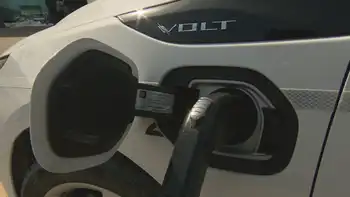Grey fleet management rises up corporate agenda, says Licence Check
NFPA 70e Training
Our customized live online or in‑person group training can be delivered to your staff at your location.

- Live Online
- 6 hours Instructor-led
- Group Training Available
Grey Fleet Management is rising up the corporate agenda as firms tackle driver compliance, duty of care, cost control, risk management, and emissions, using policy enforcement, vehicle checks, and hosted solutions to mitigate legal liability.
Key Points
Grey fleet management governs private-car travel for work, ensuring compliance, cost control, and reduced legal risk.
✅ Validates licences, insurance, MOT, and vehicle roadworthiness
✅ Enforces duty of care and health and safety compliance
✅ Cuts expenses via policy controls and hosted compliance tools
Cost and safety concerns, including higher EV prices influencing procurement decisions, have seen grey fleet management rise up the corporate agenda, says Richard Brown, managing director of Licence Check.
He said the provider of driver and vehicle management solutions has seen that, with a few exceptions, grey fleets tend to be poorly managed which pushes up expenses for employers and potentially puts them at risk of prosecution or being sued for negligence.
Brown said: “Traditionally, grey fleets checks have been a no-go area for many fleet managers, who shy away from enforcing policies on drivers who drive their own vehicles for work.
"This is in due part to an ‘ignorance is bliss’ attitude or they rely on a signed letter of declaration therefore it’s down to the driver – if they don’t know, then they can’t be guilty of taking no action.
"There is also fear of repercussions from unions, or the workforce, in what may be seen as unwarranted intrusion into their personal affairs because they have opt-out of a company car policy or don’t themselves feel a responsible because they are not driving regularly enough on company business.
“Very often, employers make very few or no internal checks, or external referencing to validate the information provided by the grey fleet driver, and wider electrification planning such as the power needs of electric truck fleets is often not considered either.
"Neither is there information held about the vehicle itself.
"Grey fleet vehicles are typically over seven years old and therefore are less reliable, less environmentally friendly than a newer model and no data is collected on servicing and maintenance, even as the EV aftermarket evolves in parallel.
"In fact, the BVRLA’s research shows that the average grey fleet car was older, more polluting, less well maintained and therefore potentially more dangerous than any of the alternatives, including electric buses that have yet to achieve widespread adoption. Grey fleet vehicles were typically 8.2 years old and pumped 8,156 tonnes of NOx into the environment.
“Many businesses have chosen a course of minimum intervention, or to ignore their grey fleet altogether.
"But a change of attitude is apparent. Increases in the levels of fines for health and safety breaches together with risk reduction initiatives and debates over fairer vehicle taxes have raised the grey fleet profile once again.
"These, coupled with the development of affordable hosted solutions with specialist service providers like Licence Check and the need to drive through savings in the business travel expenses budget means that grey fleet management is rapidly escalating up the corporate agenda.”








